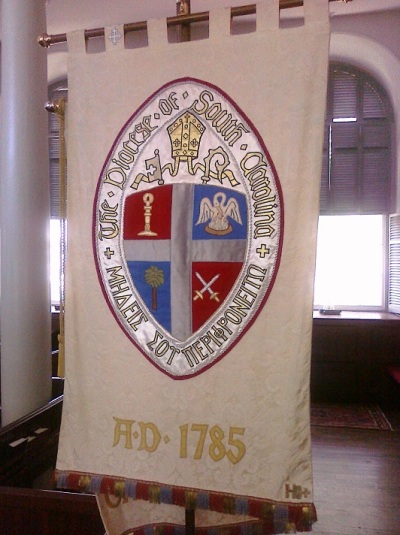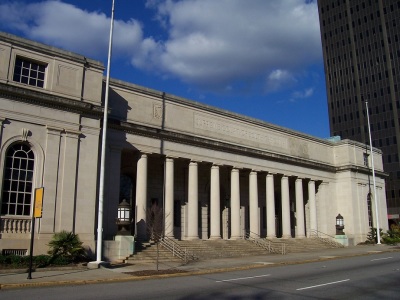SC Supreme Court Rules That Breakaway Diocese's Properties Belong to Episcopal Church

South Carolina's highest court has ruled that at least 29 of the 36 properties of a diocese that left The Episcopal Church belong to the national denomination.
Nearly two years after the breakaway Episcopal Diocese of South Carolina and The Episcopal Church in South Carolina (the diocese consisting of members who remained with the national denomination) brought their arguments to the state Supreme Court, the high court released its ruling on Wednesday morning.
While the lengthy decision partly affirmed a lower court ruling in favor of the departing diocese, the majority ruling granted The Episcopal Church ownership of at least 28 of the 36 diocesan properties that left the denomination.
Acting Justice Costa Pleicones authored the majority opinion, in which he argued that the lower court ruling had an "error of law" which produced "a distorted view of the issues in this case."
"I conclude that the present property and church governance disputes are not appropriate for resolution in the civil courts and would reverse the order to the extent it purports to resolve these questions," wrote Justice Pleicones.
"Finally, I find the trial court erred in holding that the Respondents' state-registered trademarks prevail over TEC's federally-protected trademarks, and therefore would also reverse that portion of the order."
In a concurring opinion, Justice Kaye G. Hearn wrote that The Episcopal Church's hierarchical structure meant that the diocesan properties were theirs.
"Because the National Church has ordained Charles vonRosenberg and recognizes him as the Bishop in the Lower Diocese, this Court, under long-settled principles, must defer to that decision," wrote Hearn.
"Consequently, I would find the actions of the breakaway bishop, Mark Lawrence, and his followers in leaving the National Church and attempting to take its property with them, are ineffective."
A deciding factor for the high court was the Episcopal Church's Dennis Canon, which states that all church properties are held in trust by the denomination.
There was still some question within the concurring opinions about the fate of several of the 36 church properties, whose property documents lacked affirmation of the Dennis canon language.

In November 2012, the South Carolina Diocese voted to leave the national denomination due to theological differences and the apparent mistreatment of diocesan bishop the Rev. Mark Lawrence.
In January 2013, a lawsuit was filed by the breakaway diocesan leadership over the rightful ownership of the regional body's name and property, the latter of which has an estimated value of $500 million.
The breakaway leadership was able to get an injunction allowing them to use the name Diocese of South Carolina while the lawsuit was processed.
Episcopalians who remained loyal to the national denomination adopted the name The Episcopal Church in South Carolina and elected the Rt. Rev. Charles vonRosenberg as provisional bishop.
In February 2015, Judge Diane Goodstein ruled in favor of the breakaway diocesan leadership and in September of that year the state supreme court heard arguments in an appeal.
From there, came the long wait as the high court took nearly two years to release their decision. In June, the breakaway diocese opted to join the theologically conservative Anglican Church in North America.
In an announcement released in March, the diocese explained that should the affiliation be confirmed, they "will be the largest Diocese in the ACNA."
"The ACNA represents the unifying of a number of different groups in terms of theological approach and worship emphasis such as evangelicals, charismatics and Anglo-catholics," stated the diocese.
"In South Carolina this new unity has a healing dimension in that the Reformed Episcopal Church, which split from TEC in 1873, is also a member. South Carolina represents one of the REC's stronger membership locations."
Both sides of the legal battle released statements on Wednesday explaining that they needed to review the decision more closely before giving their opinion of the result.
In a dissenting opinion, Acting Justice Jean Toal wrote that she found the decision problematic in that she felt it ignored state law in order to reach "a desired result."
"Under the lead opinion's formulation, these parishes, like all of the other plaintiff parishes, must surrender their lawful titles to the national church for the mere fact that the national church is a religious organization. This is extremely troubling. The lead opinion offers no explanation or legal basis (and I know of none) that allows for an organization—religious or otherwise—to strip an individual, business, or charitable organization of title ownership because that organization unilaterally declares ownership in such property," wrote Toal.
"The lead opinion in this case is nothing less than judicial sanction of the confiscation of church property masquerading as an attempt to promulgate a new deference rule for determining title in this matter."



























